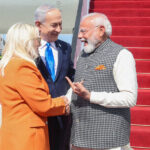Islamabad: The finance ministry has acknowledged that the International Monetary Fund (IMF) objected to the government’s decision to waive taxes on sugar imports, an attempt to control soaring local prices. Despite this, the government has entered into a new agreement with the Pakistan Sugar Mills Association (PSMA), allowing sugar exports in the future if national stocks exceed seven million metric tonnes, according to the media reports.
The agreement, signed on July 14 by the minister for national food security and research and the PSMA, aims to keep sugar prices stable by asking millers to maintain ex-factory rates between Rs165 and Rs171 per kilogram until October 15. Critics argue the move repeats past mistakes, as a previous export allowance of 765,000 metric tonnes drove prices up to Rs200 per kg.
To stabilise the domestic market, the government had permitted duty-free sugar imports—prompting disapproval from the IMF. Speaking at a National Assembly Standing Committee on Finance meeting on Wednesday, Secretary Finance Imdadullah Bosal confirmed that “the government is discussing the sugar issue with the IMF.”
Committee chairman Syed Naveed Qamar of the PPP said the IMF was unhappy with the tax waivers. Bosal clarified that the IMF programme includes about 70 conditions, one of which prohibits tax exemptions. Sources indicate that the IMF has demanded the government withdraw three statutory regulatory orders (SROs) related to the tax waivers.
According to The Express Tribune, the IMF viewed the move as a serious breach of Pakistan’s $7 billion programme. Federal Board of Revenue (FBR) Chairman Rashid Langrial defended the tax waiver, noting that total duties on sugar stood at 53%, making imports unaffordable. The waiver aimed to lower the import price by Rs82 per kg.
Initially, the Trading Corporation of Pakistan (TCP) issued a tender to import 300,000 tonnes of sugar. After IMF objections, the volume was reduced to 50,000 tonnes, and the bid deadline was extended to July 22.
MNA Jawed Hanif criticised what he called the government’s double standards—using the IMF to justify budget constraints but then violating the programme. Bosal denied speculation that the IMF would push for new taxes on salaried individuals in response to the sugar waiver.
PPP’s Nafisa Shah pointedly remarked, “Vested interests are stronger than the IMF.”
The sugar export agreement states that “the federal government will allow, for export of sugar stocks exceeding seven million metric tonnes (carryover plus 2025-26 production), after 30 days of the closing of the crushing season 2025-26.”
This definition means even imported sugar, if not consumed, could count toward total stock. The stock verification will rely on FBR’s track and trace system and be overseen by a four-member committee, one official each from the federal and provincial governments and two from PSMA.
Notably, the agreement includes a price-setting clause that some believe contradicts Competition Commission of Pakistan (CCP) rules. It sets a maximum ex-mill price of Rs165 per kg as of July 15, 2025, with a Rs2 per kg monthly increase until October 15, 2025—bringing the maximum to Rs171 per kg. Critics argue this move effectively guarantees a profit margin for sugar millers, as pre-export prices were below Rs140 per kg.
Qamar criticised the government’s continued involvement in sugar trade and suggested it should end licensing for new sugar mills. “There are sufficient stocks in the country. Importing sugar sends the wrong signals to the market,” he said, adding that government regulation should focus on wheat, not sugar.
The committee also discussed two private member bills: the Corporate Social Responsibility (CSR) Bill, introduced by Nafisa Shah, and the Parliamentary Budget Oversight Bill, presented by MNA Rana Iradat Sharif Khan.
The CSR bill proposes that companies allocate 1% of their net income to social welfare. The finance ministry opposed the bill, arguing it would increase the cost of doing business. However, committee members rejected this claim, pointing out that many companies already contribute around 1.5% voluntarily.
Despite support, the finance ministry requested a one-month consultation period with stakeholders, which the committee deemed unnecessary.
On the budget oversight bill, Secretary Bosal expressed reservations. But Qamar argued it was necessary to ensure accountability, noting, “This may challenge the bureaucracy’s comfort zones, but it’s essential for improving the system.” A sub-committee was formed to further evaluate the proposal.

















